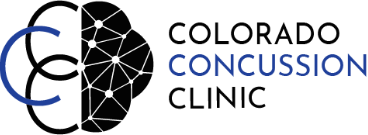When recovering from a concussion, routines are extremely important for brain health and healing. Given the current pandemic, many of us have had our daily routines completely upended. As we settle into the changes in our day to day lives, maintaining routines when possible, as well as creating new routines will be helpful to support ongoing recovery. With stay at home orders in most states, we have put together some tips to help get through these trying times while dealing with the effects of a concussion.
Designate a space for working from home. This is preferably outside of your bedroom when possible to create separation from your sleep environment. If you can work with a door closed to minimize distractions, that will also be helpful.
Limit screen time. Many of us are now working online, which may make limiting screen time a challenge. If screen use increases your symptoms, it will be important to schedule frequent, short breaks from the computer. By taking breaks regularly, you can help prevent common symptoms such as eye strain and headache.
Keep moving! With gyms across the country closed, our exercise routines are disrupted. Getting out for daily walks is important, as exercise is one of the most important things we can do to facilitate the recovery process. The intensity is important and will vary for each person, but in general you want to aim for an intensity that does not make symptoms worse. 15-20 minutes of walking 1-2 times a day, as long as your symptoms are not worsening, is a great start. Just be sure you are maintaining 6 feet from others! In addition to daily walking, there are a lot of virtual workout options available through gyms, yoga studios, online trainers, and youtube. Make sure your exercise routine is approved by your physician/concussion management team.
Maintain good sleep hygiene. Sleep hygiene is extremely important, especially when we are spending so much time at home. Maintaining a regular schedule around when we go to sleep and when we wake up can be helpful. Develop a relaxing bedtime routine to facilitate falling asleep more easily. This can involve meditation, reading, and avoiding electronics for about an hour before bed.
Stay consistent with meal times and meal planning. Being at home all the time can disrupt our structured eating habits. Try to maintain consistent times that you eat your meals to make sure you are getting the nutrition you need while recovering. Meal planning over the weekend or at the beginning of the week can help you stay on track throughout your work days. And be sure to stay well hydrated as this can help decrease your headaches.
Stay connected with friends and family. This is extremely important, as well as challenging, given the need for physical distancing to slow the spread of the virus. Finding alternative ways to connect is necessary to maintain social contact with your support network. Connecting via video chat is a great way to check in with people. If screens increase your symptoms, you may want to consider keeping video chats short, or schedule times for phone conversations instead.
Develop a mindfulness practice. With the increased stress of these times, mindfulness is a tool that can help manage the things that are being brought up. Meditation and breathing techniques are ways to stimulate the calming part of the nervous system to manage anxiety and stress. Youtube is also a great source for guided meditations, as is the app headspace.
Hopefully incorporating some of these tips as you settle into these changes in lifestyle will help with structure to support your healing. Stay safe and healthy!

